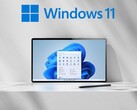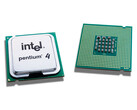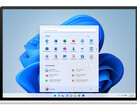Recently, the Windows Developer team held an Ask Me Anything (AMA) session on Reddit. The team detailed several new improvements coming to the Windows UI (WinUI) user experience framework including the release of Windows App SDK 1.0. One of the key takeaways of this AMA was that we can expect tangible performance improvements coming next year.
Replying to a query on the apparent slow and GPU-heavy nature of UWP XAML apps in Windows 10 that also continues in Windows 11, the Windows Dev team responded that performance will be a key area of focus for the new WinUI framework in 2022. This includes startup/launch performance, scalability of the interface, etc.
This means actions that currently lag or have slow animations such as invoking the Win+X menu, the new Windows Terminal, the language bar, File Explorer, right click context menus, clicking on inbox system tray icons, etc. should all feel snappy with upcoming Windows updates.
The team also said that the Windows App SDK 1.1 coming next year will offer an updated WinUI 3 that enables developers to make use of native Mica (Windows 11) or Acrylic (Windows 10) styling similar to the respective Settings app on both OSs.
For those not in the know, Universal Windows Platform (UWP) apps have several common APIs that can be targeted by developers for all Windows-based devices including Xbox and HoloLens. WinUI 2.x is a controls and styles framework that was built to run on top of UWP apps published to the Microsoft Store. It is possible to integrate some of these controls in Win32 apps via XAML Islands as well.
WinUI 3, however, is a new Microsoft framework that supplants the current Universal Windows Platform (UWP). It uses a different application framework that also works with Win32 apps, and these apps can be developed without having to refer to the UWP SDK just like how desktop developers have been used to creating apps using the proven Windows Presentation Foundation (WPF) and WinForms.
Essentially, we can expect a much faster and responsive Windows 11 sometime next year. In the meanwhile, Microsoft is also simultaneously accelerating Windows 11 rollout to compatible devices and has apparently received net positive feedback.
Writing in the Windows Experience Blog, John Cable, VP, PM, Windows Servicing and Delivery said,
Today, based on the positive rollout update experience and user feedback we have seen to date, we are advancing the pace of the rollout faster than we previously anticipated, and are now making the Windows 11 upgrade more broadly available to eligible Windows 10 devices."
Hopefully, Microsoft improves performance of key OS components before wider rollout next year.



















